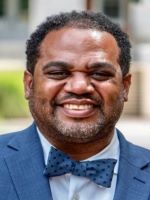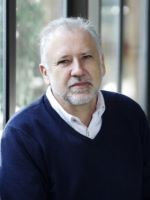Speakers
Keynote Speakers
 Dorothy Espelage
Dorothy Espelage
William C. Friday Distinguished Professor of Education
School of Education
University of North Carolina at Chapel Hill, U.S.A.
School-based Bully Prevention: Identifying Risk and Protective Factors Across the Social-Ecology
Dorothy L. Espelage, Ph.D., is William C. Friday Distinguished Professor of Education at the University of North Carolina at Chapel Hill. She is the recipient of the APA Lifetime Achievement Award in Prevention Science and the 2016 APA Award for Distinguished Contributions to Research in Public Policy, and is a Fellow of APS, APA, and AERA. She is an elected member of the National Academy of Education and awarded the SPR Prevention Science Award in 2020. She earned her Ph.D. in Counseling Psychology from Indiana University in 1997. Over the last 25 years, she has authored over 300 peer- reviewed articles, eight edited books, and 80 chapters on bullying, homophobic teasing, sexual harassment, dating violence, social-emotional learning interventions, and school climate. Her research focuses on translating empirical findings into prevention and intervention programming and she has secured over 20 million dollars of external funding. She advises members of Congress and Senate on bully prevention legislation. She conducts regular webinars for CDC, NIH, and NIJ to disseminate research. She has conducted randomized clinical trials to evaluate K-12 social-emotional learning programs to reduce youth aggression, peer-led interventions to address sexual violence and suicidal behaviors, and virtual reality-based bully prevention programs. Findings of her research are guiding state, national, and international efforts to prevent youth violence and promote positive school climates. She authored a 2011 White House Brief on bullying among LGBTQ youth and attended the White House Conference in 2011.
⠀
 Sophia Moskalenko
Sophia Moskalenko
Georgia State University and United Nations Office of Counter-Terrorism Hub for Behavioral Insights, U.S.A.
Deadly Disinformation: The role of conspiracy theories and ideology in mass radicalization
Sophia Moskalenko is a social psychologist studying mass identity, inter-group conflict and conspiracy theories. After she received her Ph.D. from the University of Pennsylvania in 2004, her research has focused on the psychology of radicalization, self-sacrifice and martyrdom. Dr. Moskalenko has presented at scientific conferences, government briefings, radio broadcasts and international television newscasts. As a research fellow at the National Consortium for the Study of Terrorism and Responses to Terrorism (NC-START) she has worked on projects commissioned by the Department of Defence, Department of Energy, Department of Homeland Security, and Department of State. She is a Research Fellow at Georgia State University and serves as a consultant to the United Nations’ Counterterrorism Hub, and to the European Commission.
She has co-authored several books, including award-winning Friction: How conflict radicalizes them and us; The Marvel of Martyrdom: The power of self-sacrifice in the selfish world; and Pastels and Pedophiles: Inside the Mind of QAnon.
 Joseph B. Richardson
Joseph B. Richardson
MPower Professor of African-American Studies and Medical Anthropology, Department of African-American Studies, Department of Anthropology, College of Behavioral and Social Sciences, University of Maryland, U.S.A.
Gun Violence and social murder: Understanding structural violence, community violence and trauma among young black men living in the national capital region
Dr. Joseph Richardson is the MPower Professor of African-American Studies and Medical Anthropology at the University of Maryland. Dr. Richardson’s research centers on gun violence, structural violence, violent firearm injury, mental health, qualitative methods, translational science and violence prevention/interventions for Black boys and young Black men. Dr. Richardson is the Director of the PROGRESS Initiative (Prevent Gun Violence: Research, Empowerment, Strategies and Solutions) at the University of Maryland. He is a HAVI Faculty Member and currently serves as the Lead Epidemiologist for the Violence Intervention Research Project, a hospital-based violence intervention program research project at the University of Maryland R Adams Cowley Shock Trauma Center. Through funding support from Arnold Ventures, Dr. Richardson is leading a longitudinal qualitative research evaluation of CVI street outreach programs in the District of Columbia. Dr. Richardson is the Co-Chair of the District of Columbia Violence Fatality Review Committee and Producer/Director of the award-winning documentary feature Life After the Gunshot. Dr. Richardson was recently elected as a member of the National Academy of Medicine Class of 2023.
 Karin Roelofs
Karin Roelofs
Donders Institute for Brain Cognition and Behaviour, Radboud University, Nijmegen, The Netherlands
Emotion control in aggression, a neuroendocrine perspective
Karin Roelofs is Professor of Experimental Psychopathology and chair of the Affective Neuroscience group (EPAN) at the Donders Institute for Brain Cognition and Behaviour, Radboud University in Nijmegen, The Netherlands. She is an expert in psychological and neuroendocrine mechanisms underlying stress-resilience and stress-related disorders, including anxiety and aggression-related disorders. With a clear focus on neurocognitive mechanisms of defensive stress-responses, she uses various brain imaging (fMRI, MEG) techniques, combined with neural stimulation (cTBS, tACS, TUS) or pharmacological interventions (steroid hormones) during emotional control and decision making tasks. Next, to test their role in resilience, she applies the neurocognitively grounded paradigms in longitudinal samples, including a developmental sample from the Nijmegen Longitudinal Study (NLS) a large police cohort from the NWO-VICI funded Police-In-Action (PIA) study and patients with stress-related disorders from the ERC-consolidator funded DARE2APPROACH study. Karin Roelofs is member of the Royal Netherlands Academy of Arts and Sciences (KNAW), Academia Europaea (AE), founding member and vice-president of the Association for ERC Grantees (AERG) and president of the International Resilience Alliance (INTRESA). She is recipient of several European grants, including ERC-starting, ERC-consolidator and EU horizon2020 grants. In 2020 she won the Evens Science Prize, an international prize for societally relevant cognitive neuroscience research, for her work on stress-resilience. Furthermore, she is a BIG-registered GZ-psychologist.
John Paul Scott Award
 Thomas Elbert
Thomas Elbert
Department of Psychology
University of Konstanz, Germany
Fighters - in the tension between violence and trauma.
Thomas Elbert studied physics (diploma 1975) and psychology (PhD 1978) at the Universities of Munich and Tübingen. He worked there in the field of behavioural neuroscience until 1989 with intermittent visiting professorships at Pennsylvania State University and Stanford University. He then became head of a clinical research group at the Medical Faculty of the University of Münster. Since 1995 he has been a Professor of Clinical Psychology and Behavioural Neuroscience at the University of Konstanz, studying the consequences of social and traumatic stress in the laboratory and also in war and crisis regions in Africa and Asia. There he also has investigated the drivers of violent and aggressive behaviour. Based on behavioural, clinical and neuroscientific studies, his team has advanced psychotherapeutic tools and together with Profs Frank Neuner and Maggie Schauer developed Narrative Exposure Therapy to counter the adverse consequences of traumatic stress and violence.
Elbert is a Hector fellow, member of the Academia Europaea, the German National Academy of Sciences Leopoldina, the Berlin-Brandenburg Academy of Sciences and holds honorary professorships at the Université Lumiére in Burundi and the Mbarara University of Science and Technology in Uganda. He has received an ERC advanced grant, an ERC POC grant, was awarded a Koselleck-Project from the DFG, and was honored (amongst others) by a German Psychology Award and the Carl-Friedrich-von-Weizsäcker-Preis for “significant scientific contribution to tackle the great challenges society is facing today”.
Presidential Address
 Tracy Vaillancourt
Tracy Vaillancourt
Faculty of Education
University of Ottawa, Canada⠀⠀⠀⠀
Is Aggression Part of the Human Condition?
Dr. Tracy Vaillancourt is a Tier 1 Canada Research Chair in School-Based Mental Health and Violence Prevention at the University of Ottawa where she is cross-appointed as a full professor in Counselling Psychology, Faculty of Education and the School of Psychology, Faculty of Social Sciences. Dr. Vaillancourt is also a member of the Brain and Mind Institute, Faculty of Medicine and the Centre for Health Law, Policy, and Ethics, Faculty of Law, uOttawa. She is the president of the International Society for Research on Aggression, a fellow and Chair of the COVID-19 Task Force for the Royal Society of Canada, the Chief Editor, Frontiers in Child and Adolescent Psychiatry – Child Mental Health and Interventions, and a Senior Fellow with the Centre for International Governance Innovation.
 Spencer C. Evans
Spencer C. Evans
Department of Psychology, University of Miami, Coral Gables, FL, USA
Youth Irritability, Anger, and Aggression Revisited: A Developmental Psychopathology Perspective
Dr. Spencer Evans is an Assistant Professor of Psychology at the University of Miami, where he is affiliated with the Clinical Program and Child Division. Dr. Evans earned his Ph.D. in Clinical Child Psychology, with a minor in quantitative methods, from the University of Kansas in 2017. He subsequently completed a post-doctoral research fellowship focusing on youth mental health treatment and assessment at Harvard University. Broadly, Dr. Evans’s research focuses on behavioral and emotional dysregulation problems in youth, with three particular lines of interest: (1) the developmental course, correlates, and outcomes of irritability and aggression in children and adolescents; (2) assessment, diagnosis, and classification of youth psychopathology; and (3) evidence-based psychosocial intervention. To date, he has published more than 65 peer-reviewed publications related to these topics. His research has attracted funding and recognitions from the National Institute of Mental Health, the American Psychological Foundation, AIM Youth Mental Health, the Association for Psychological Science, and the Journal of Clinical Child and Adolescent Psychology. In addition, Dr. Evans has been actively involved in ICD-11 and DSM-5 revision efforts, with a particular focus on the diagnostic classification of problems related to irritability, aggression, and disruptive behavior across development.

